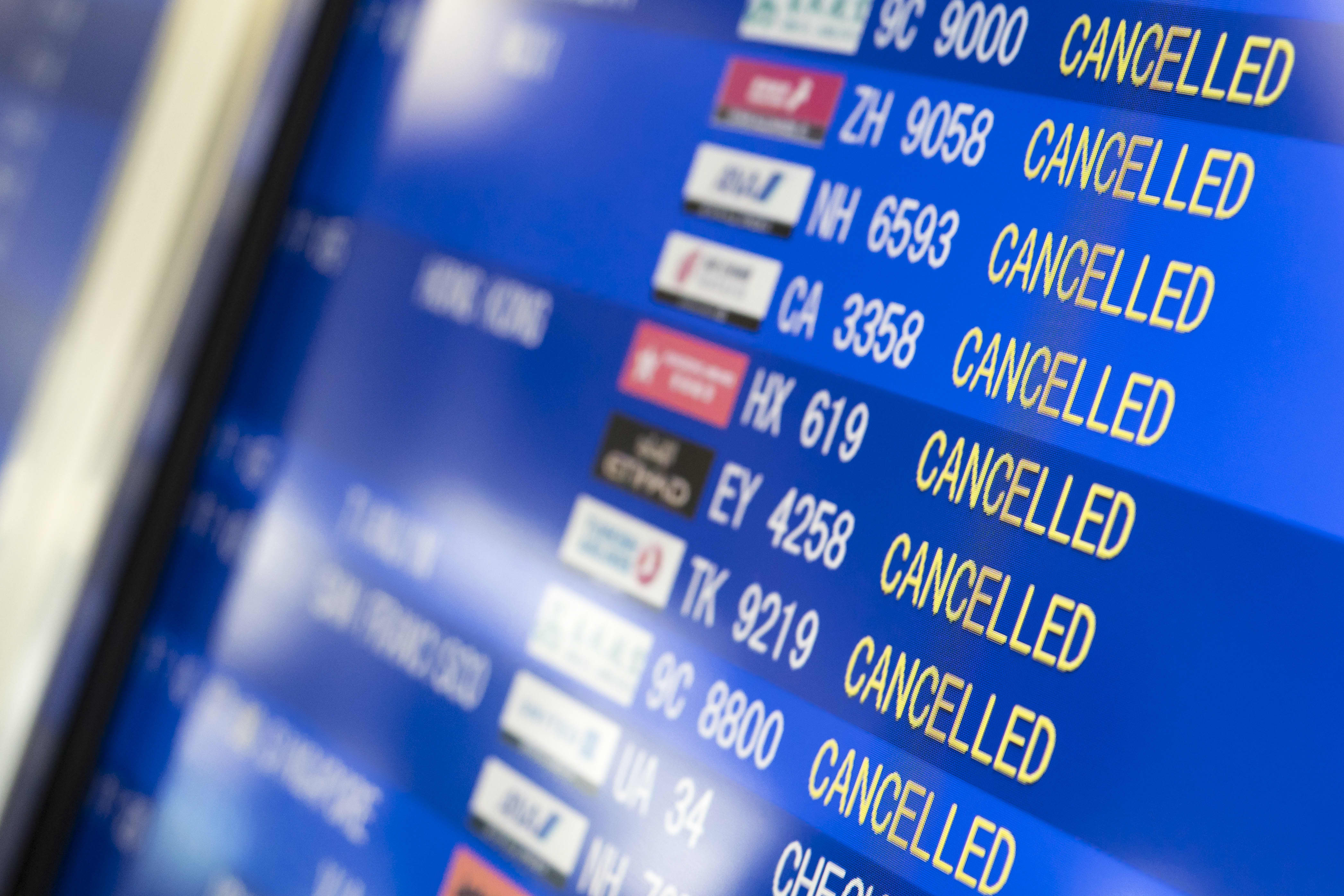Products You May Like
Information board displaying cancelled flights at the departure hall at Kansai International Airport on March 10, 2020 in Osaka, Japan.
Tomohiro Ohsumi | Getty Images
From spring breaks to summer holidays, the coronavirus pandemic has disrupted travel plans globally as lockdown measures keep much of the world’s population at home during some of the peak seasons for traveling.
To limit the spread of Covid-19, more than 200 countries and territories worldwide have imposed measures that restrict or deter people from entering their respective borders, according to a report released last week by the United Nations World Tourism Organization.
“Never before in history has international travel been restricted in such an extreme manner,” the report by UNWTO read.
From flight suspensions to border closures, the massive shutdown has cost countries billions of tourism dollars, airlines are running out of money and millions of people have lost their jobs — turning the tourism industry into one of the largest casualties of the coronavirus outbreak.
Here are five charts that show the pandemic’s impact on the travel industry.
Measures that restrict travel
Travel restrictions around the world became more stringent as more cases of Covid-19 were reported, according to the UNWTO report.
There were four broad categories of restrictions, according to the report. Of a total of 217 destinations,
- 97 destinations (or 45%) implemented total or partial border closures;
- 65 countries and territories (or 30%) suspended flights totally or partially;
- 39 locations (or 18%) enforced border closures aimed at a specific group of destinations;
- 16 countries and territories, or the remaining 7%, implemented other measures such as requiring visitors to quarantine.
UNWTO said that as of April 20, none of those destinations have lifted any measures to ban, limit or deter visitors — and in some cases, residents — from entering their borders.
Reduced commercial flights
One effect of those limitations on travel is the reduction in the number of commercial flights.
The average number of commercial flights per day fell from more than 100,000 in January and February this year to around 78,500 in March and 29,400 in April, according to data by Flightradar24, a website that tracks flights globally.
Such a decline has led airlines to ground a large proportion of their fleet, resulting in many running into financial difficulties.
Some governments have stepped in to offer a lifeline for those struggling. They include:
Projected loss in airline revenue
Still, passenger revenue for airlines is estimated to plunge by $314 billion in 2020 — or a 55% drop from 2019 levels, according to the International Air Transport Association.
The aviation industry could take years to fully recover, said Brendan Sobie, an independent analyst at consulting firm, Sobie Aviation.
“The recovery is going to be very slow, it’s going to be a long road especially for international travel,” he told CNBC’s “Capital Connection” last month.
“We’ll see some domestic recovery this year, but the international recovery is going to take a few years and could take several months to start.”
Hotel occupancy drops
In addition to airlines, hotels have also been hit by the reduction in travel.
Hotel rates fell across all regions in March, according to data by STR, an analytics firm that tracks the hospitality sector.
Millions of jobs lost
The tourism industry contributes around 10.3% of global gross domestic product and generates roughly one in four of the world’s new jobs over the past five years, according to World Travel and Tourism Council, which represents private companies in the industry.
But the sudden halt in global travel due to the pandemic would result in more than 100 million job losses this year, according to an analysis by WTTC.
That would contribute to an estimated $2.7 trillion decline in travel and tourism GDP in 2020, the analysis showed.
“This is a staggering and deeply worrying change in such a short time,” Gloria Guevara, the council’s president and chief executive, said in an April statement. “The whole cycle of tourism is being wiped out by the pandemic.”

